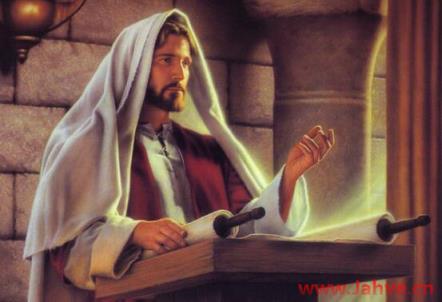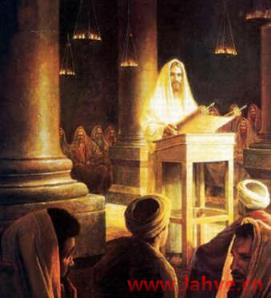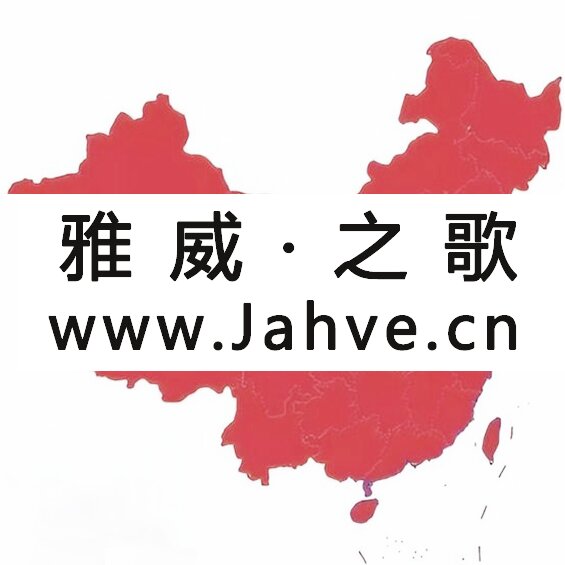
原文|Bishop Barron
翻译|Carrie2017-9-5 朋友们,在今天的福音中,耶稣在葛法翁城的会堂里教训人。祂来到这个世上要做的事情之一就是教训,因为我们的困难和痛苦根源于一种强大的思想混浊。跟耶稣共处一室是什么感觉?“群众都惊奇他的教训,因为他教训他们,正像有权威的人,不像他们的经师。”“惊奇”这个词的语气强烈,但我们必须理解当时的情况。每当某位犹太辣彼讲授,他都会以其导师(即另一位辣彼)为证人,而他的导师又是师从另一位辣彼,如此类推。最后,所有辣彼都会或明示或暗示地引证于梅瑟,因为他在西乃山上领受天主的圣言和十诫。耶稣的教训如此不同凡响(且不说祂教训的内容已经够不同凡响了)的原因在于祂的教训方式。祂不以某某辣彼为证人,并最终求证于梅瑟。祂以自己的权威来教训。原文中的希腊词语(exousia)颇具启发性,它的意思是“以祂自身的存在”。切斯特顿说,耶稣在传道生涯的行迹就像闪电一样。Friends, in today's Gospel Jesus teaches in the synagogue at Capernaum. One of the things that he comes to do is to teach, for at the root of our troubles and our suffering is a powerful clouding of the mind. What is it like to be in the same room with Jesus? "The people were astonished at his teaching, for he taught them as one having authority and not as the scribes.""Astonished" is a pretty strong word. But we have to understand the tenor of the time. When a Jewish rabbi would speak, he would reference his teacher—another rabbi—who in turn had learned from another rabbi and he by another and so on. Finally, appeal would be made, implicitly or otherwise, to Moses, who had received the word and commandments of God on Mt. Sinai.What makes Jesus' teaching so striking—apart from the content, which is striking enough—is his manner of teaching. He doesn't appeal to Rabbi "so and so" and finally back to Moses. He teaches on his own authority. The Greek word here is instructive (exousia), meaning "from his own being". He moves through his public life, Chesterton said, like a lightning bolt.2017-9-4
朋友们,在今天的福音中,耶稣在葛法翁城的会堂里教训人。祂来到这个世上要做的事情之一就是教训,因为我们的困难和痛苦根源于一种强大的思想混浊。跟耶稣共处一室是什么感觉?“群众都惊奇他的教训,因为他教训他们,正像有权威的人,不像他们的经师。”“惊奇”这个词的语气强烈,但我们必须理解当时的情况。每当某位犹太辣彼讲授,他都会以其导师(即另一位辣彼)为证人,而他的导师又是师从另一位辣彼,如此类推。最后,所有辣彼都会或明示或暗示地引证于梅瑟,因为他在西乃山上领受天主的圣言和十诫。耶稣的教训如此不同凡响(且不说祂教训的内容已经够不同凡响了)的原因在于祂的教训方式。祂不以某某辣彼为证人,并最终求证于梅瑟。祂以自己的权威来教训。原文中的希腊词语(exousia)颇具启发性,它的意思是“以祂自身的存在”。切斯特顿说,耶稣在传道生涯的行迹就像闪电一样。Friends, in today's Gospel Jesus teaches in the synagogue at Capernaum. One of the things that he comes to do is to teach, for at the root of our troubles and our suffering is a powerful clouding of the mind. What is it like to be in the same room with Jesus? "The people were astonished at his teaching, for he taught them as one having authority and not as the scribes.""Astonished" is a pretty strong word. But we have to understand the tenor of the time. When a Jewish rabbi would speak, he would reference his teacher—another rabbi—who in turn had learned from another rabbi and he by another and so on. Finally, appeal would be made, implicitly or otherwise, to Moses, who had received the word and commandments of God on Mt. Sinai.What makes Jesus' teaching so striking—apart from the content, which is striking enough—is his manner of teaching. He doesn't appeal to Rabbi "so and so" and finally back to Moses. He teaches on his own authority. The Greek word here is instructive (exousia), meaning "from his own being". He moves through his public life, Chesterton said, like a lightning bolt.2017-9-4 朋友们,在今天的福音中,耶稣诵读《依撒意亚》先知书里关于救世主变革的预言。然后祂说该预言就在祂身上应验了。听众起初作出积极的反应。他们赞成的原因随之可见:“并且说:’这不是若瑟的儿子吗?’”毫无疑问,他们在想:既然这小子是救世主,而且是本地人,那我们就能获益良多!正如蒂普•奥尼尔说的,“所有政治都是本土利益主义。”但耶稣开始让他们大跌眼镜。祂援引了《圣经旧约》中的两个令人不安的典故。第一个是关于厄里亚在一场大饥荒中,并没有被派去帮助以色列人,而是到了漆冬的一个外方寡妇那里。第二个是洁净癞病人的厄里叟并没有帮助以色列人,只洁净叙利亚的纳阿曼。在以色列史上的这些关键时刻,天主照顾的不是以色列,而是其他民族。祂是在提醒以色列子民:他们的存在是为了其他民族的利益。
朋友们,在今天的福音中,耶稣诵读《依撒意亚》先知书里关于救世主变革的预言。然后祂说该预言就在祂身上应验了。听众起初作出积极的反应。他们赞成的原因随之可见:“并且说:’这不是若瑟的儿子吗?’”毫无疑问,他们在想:既然这小子是救世主,而且是本地人,那我们就能获益良多!正如蒂普•奥尼尔说的,“所有政治都是本土利益主义。”但耶稣开始让他们大跌眼镜。祂援引了《圣经旧约》中的两个令人不安的典故。第一个是关于厄里亚在一场大饥荒中,并没有被派去帮助以色列人,而是到了漆冬的一个外方寡妇那里。第二个是洁净癞病人的厄里叟并没有帮助以色列人,只洁净叙利亚的纳阿曼。在以色列史上的这些关键时刻,天主照顾的不是以色列,而是其他民族。祂是在提醒以色列子民:他们的存在是为了其他民族的利益。
Friends, in our Gospel for today Jesus reads from Isaiah a prophecy dealing with the Messianic transformation of the world. And then he declares it fulfilled, precisely in him. The audience initially is positive. And then we see why they are so favorable: "They also asked, 'Isn't this the son of Joseph?'" Undoubtedly, they are thinking: well, if this man is the Messiah, and he's a local boy, we will benefit enormously! As Tip O'Neill said, "all politics is local."But Jesus commences to throw them for a loop. He invokes two uneasy stories from the Old Testament tradition, the first dealing with Elijah. During a drought Elijah is sent, not to an Israelite, but to a widow from Sidon, a foreigner. And the second deals with Elisha, who cleanses from leprosy, not an Israelite, but Naaman the Syrian.At these key moments in its history, God attends to the needs of the other nations and not the needs of Israel. He is reminding them that Israel existed for the sake of the other nations.

微信小程序
微信扫一扫体验

微信公众账号
微信扫一扫加关注
顶部
